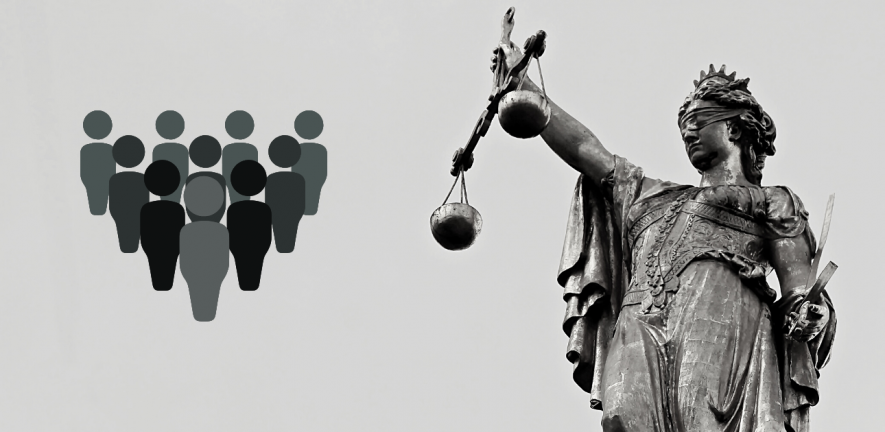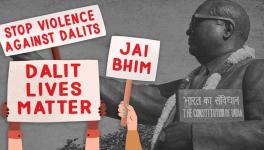Denial of Reservations For Dalit Christians/Muslims is in the Teeth of Substantive Equality

The validity of the Constitution (Scheduled Castes) Order, 1950 has been upheld by the Supreme Court in 1985 on a severely limited conception of the equality code. Recent developments necessitate its reconsideration.
—-
What is the Constitution (Scheduled Castes) Order, 1950, and why was it in the news recently?
The Constitution (Scheduled Castes) Order, 1950, which is presently subject to its second constitutional challenge, holds that only the persons belonging to the Hindu, Sikh or Buddhist religions shall be eligible to constitute the constitutionally designated category of Scheduled Castes. The Supreme Court has asked the Union Government to take a stand on the question of the discriminatory nature of the 1950 Order, and the government has proposed constituting a committee to undertake a fresh study on the backwardness of Dalit Christians and Dalit Muslims.
The first challenge to the 1950 Order was made in Soosai versus Union of India & Ors. (1985), in which the Supreme Court upheld it based on evidentiary grounds and the deferential nature of its enquiry.
Dalits who have converted their religion to Christianity or Islam, which is a sizeable number running into multiple millions, are denied the benefits of reservation on ground of their conversion to another religion.
Dalits who have converted their religion to Christianity or Islam, which is a sizeable number running into multiple millions, are denied the benefits of reservation on ground of their conversion to another religion. The causes behind such conversion include one’s determination to escape caste-based exclusion and violence, and a desire to dissociate from the structure of caste in totality.
Also read: Book review: ‘Ants Among Elephants’ by Sujatha Gidla
How was the test of arbitrariness improperly applied in Soosai?
In Soosai, the petitioners challenged the 1950 Order on the basis of violations of Articles 14, 15 and 25 of the Constitution, but the court only dealt with the question of arbitrariness via an Article 14 enquiry.
The era of the 80s is considered the high tide of the arbitrariness test, with each successive judgement entrenching the principle that all State action (legislative or executive) that is arbitrary is ipso facto violative of equality.
The origins of the arbitrariness test lie in a critique of the highly deferential nature of the classification enquiry under Article 14 that causes undesirable outcomes. In Dhirendra Pandua versus State of Orissa (2008), for example, the Supreme Court upheld the exclusion of electoral candidates suffering from leprosy on the basis that the classification of persons into lepers and non-lepers is in consonance with the law’s object, which is to prevent a contagion of leprosy. The unscientific nature of the law’s object, which goes to the root of the object’s illegitimacy, is incapable of being examined within the contours of a two-step classification test.
Arbitrariness was touted as a panacea to the judicial inability to address obvious commissions of injustice that are left untouched by the classification test. The application of arbitrariness, thus, is most appropriate when the classification enquiry is unable to address the commission of an obvious injustice, which necessitates intuition-based reasoning that pinpoints arbitrary action.
The formulation of the arbitrariness test in Soosai, however, is contrary to the above formulation in both its criteria: neither does it combat the deferential standard of the classification test, nor does it choose to apply the arbitrariness test following the failure of the classification test in addressing the commission of an obvious injustice. It formulates the equality question solely in terms of arbitrariness, and holds that differential treatment offered to groups carries with it a presumption against the commission of arbitrariness that must be rebutted by the claimant.
To deny reservations, should the state not discharge its burden of proving non-arbitrariness?
Much in Soosai hinges on the role of the evidentiary burden that its deferential formulation of the arbitrariness test brings forth. In its holding that there must be a presumption against arbitrariness, the court mandates an enquiry that presumes that the rule under challenge is well-reasoned, objective, transparent, non-whimsical and thus non-arbitrary, and the responsibility of disproving the same is imposed on the petitioner.
It would be pertinent to distinguish the doctrine of the presumption of constitutionality from an enquiry that presumes the existence of well-founded reasoning undisclosed to the petitioners, which the latter are obligated to disprove. Not only is the constitutionality of the rule being presumed, but there is an additional presumption in favour of the rule meeting epistemic standards of justifiability and reasonableness. According to Soosai, the State is not required to disclose information that constitutes this justifiability, with the sole obligation to disprove such justifiability placed on the petitioner.
The collation of information that shows the continuation of discrimination after conversion, apart from being impossible to discharge by any individual petitioner, also portrays an unfortunate formulation of the individual-State relationship. The State may discriminate, harm or kill with impunity, with a presumption in favour of its non-arbitrariness intact, which each petitioner must disprove when facing injustice.
On this basis, the court holds that the petitioners must use data, statistics and social-scientific information, the burden of collating which is imposed on them, which shows that Dalit Christians (or Muslims) continue facing caste-based discrimination following their conversion. It holds that the following obligation rests on the petitioners:
“It is not sufficient to show that the same caste continues after conversion. It is necessary to establish further that the disabilities and handicaps suffered from such caste membership in the social order of its origin – Hinduism – continue in their oppressive severity in the new environment of a different religions (sic) community.”
Also read: The devil is in the detail: need for contemporaneous caste census in India
The collation of information that shows the continuation of discrimination after conversion, apart from being impossible to discharge by any individual petitioner, also portrays an unfortunate formulation of the individual-State relationship. The State may discriminate, harm or kill with impunity, with a presumption in favour of its non-arbitrariness intact, which each petitioner must disprove when facing injustice.
Recent doctrinal developments on the question of evidentiary burdens, most prominently in Navtej Singh Johar versus Union of India (2018), indicate that the State must be subject to greater accountability in its actions that give a tinge of prima facie arbitrariness.
A relook at Soosai would occur via the imposition of an obligation on the State to disprove the existence of arbitrariness after a prima facie case of discrimination is established.
Such a relook must occur in light of doctrinal developments on the role of the interrelationships within the equality code and those in the domain of reservations, for the question of exclusion from the category of Scheduled Castes is intricately connected to the purpose of reservations.
What is substantive equality?
The rule-exception logic enunciated by the Supreme Court in its early decisions of General Manager, Southern Railway versus Rangachari (1961) and M.R. Balaji versus State of Mysore (1962), has been comprehensively overruled in all cases following State of Kerala versus N.M. Thomas (1975), and it is now well settled that principles for affirmative action are emphatic restatements of the principle of equality instead of being deviations from it. Once it is established that Articles 15(4) and 16(4) are a part of the principles of equality in Articles 15 and 16, courts have also observed that Articles 15 and 16 are also restatements of the foundational principle of “equal protection of the laws” in Article 14.
If the mandate of the equality code is so broad and the obligation of securing such equality placed on the State, an ability to make unjustified differential treatment to disadvantaged groups must be held anathema to the equality code as a whole.
This is the equality code, and operates in pursuit of remedying historical injustice, identifying indirect discrimination, holding the State accountable for manifestly arbitrary acts, and securing the rule of law. If the mandate of the equality code is so broad and the obligation of securing such equality placed on the State, an ability to make unjustified differential treatment to disadvantaged groups must be held anathema to the equality code as a whole.
How is denial of reservation inconsistent with substantive equality?
In Mukesh Kumar versus State of Uttarakhand (2020), the Supreme Court held that there is no right to obtain reservations, for provisions for reservation solely enable the State to undertake affirmative action. The State, it held, is not bound to make reservations, and neither is it bound to collect data on the inadequacy of representation that would entitle a group to reservations. This proposition, is in conflict with the nature of the equality code as pursuing substantive equality. Scholars have written on this issue with alternative conceptions of the enabling power in Article 16(4), referring to it as a power coupled with duty.
Also read: Rethinking the Debate on Reservations
While Mukesh Kumar serves as an obstacle in the challenge to Soosai, given its proposition that the denial of reservation benefits does not require the fulfilment of any burdens by the State, the present constitutional challenge is also an opportunity to reconsider Mukesh Kumar. This reconsideration must also consider the principle against violating one constitutional provision in order to effectuate another, indicating that the arbitrary use of State power to deny reservations under Article 16 also runs contrary to Article 14. The use of power under Article 16(4) to deny reservations to Dalit Muslims and Christians, therefore, cannot run contrary to the mandate of substantive equality within the equality code.
Kartik Kalra is a second-year law undergraduate student at the National Law School of India University, Bengaluru.
Get the latest reports & analysis with people's perspective on Protests, movements & deep analytical videos, discussions of the current affairs in your Telegram app. Subscribe to NewsClick's Telegram channel & get Real-Time updates on stories, as they get published on our website.
























